Beirut blast: World Food Programme working around the clock to avert a humanitarian catastrophe
Please DONATE to help the World Food Programme support families and recovery efforts in Beirut
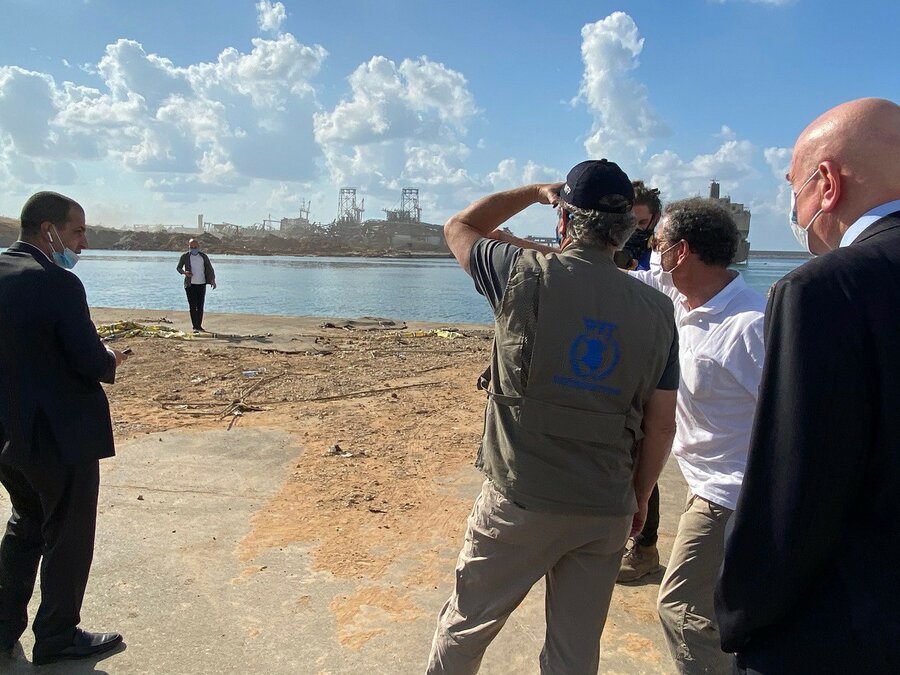
"We are looking at a catastrophe in the making," World Food Programme (WFP) Executive Director, David Beasley, has warned during a visit to Beirut, days after the cataclysmic blast which razed the Lebanese capital's port, killing more than 200 people.
The loss of the port casts a shadow on food security in a country already beset by the worst economic crisis in recent years. Not only do most of the food imports — on which Lebanon depends for 85 percent of its needs — transit via Beirut port, but the explosion has destroyed 120,000 metric tons of grains stocked there.
Grain reserves currently available in the country are estimated to last for four to six weeks — well below the three-month supply that is considered the standard to ensure food security.
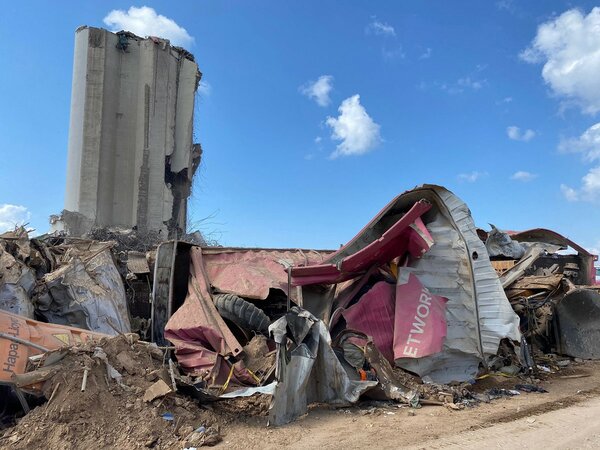
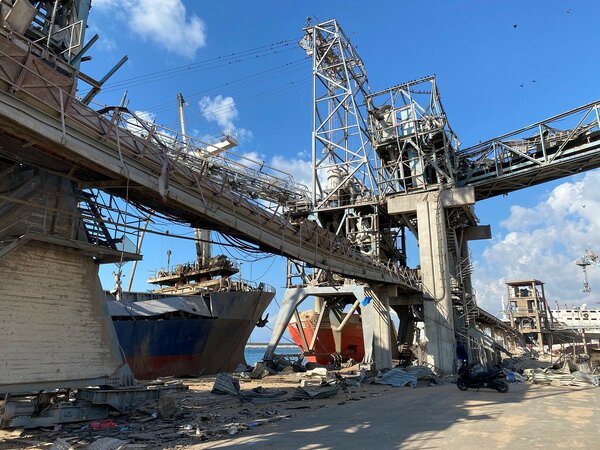
WFP is providing immediate relief to those directly affected by the blast through the delivery of 150,000 food parcels containing rice, pasta, bulgur, chickpeas, oil, salt and sugar. The organization has also partnered with Caritas Lebanon for the provision of hot meals in soup kitchens.
Initial indications are that, out of the estimated 300,000 people affected by the explosion, 150,000 people could require assistance. WFP is carrying out an assessment to determine exact needs and will scale up its cash assistance programme to reach up to one million people across the country.
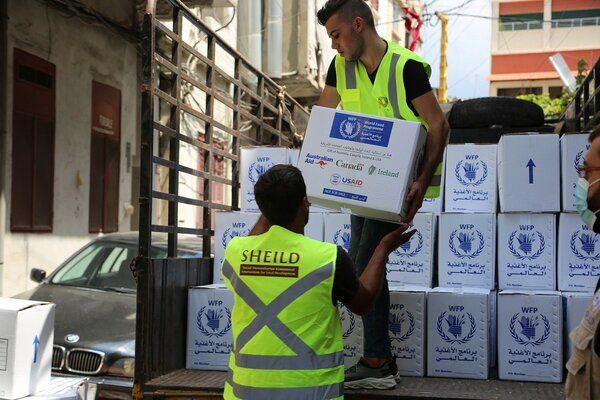
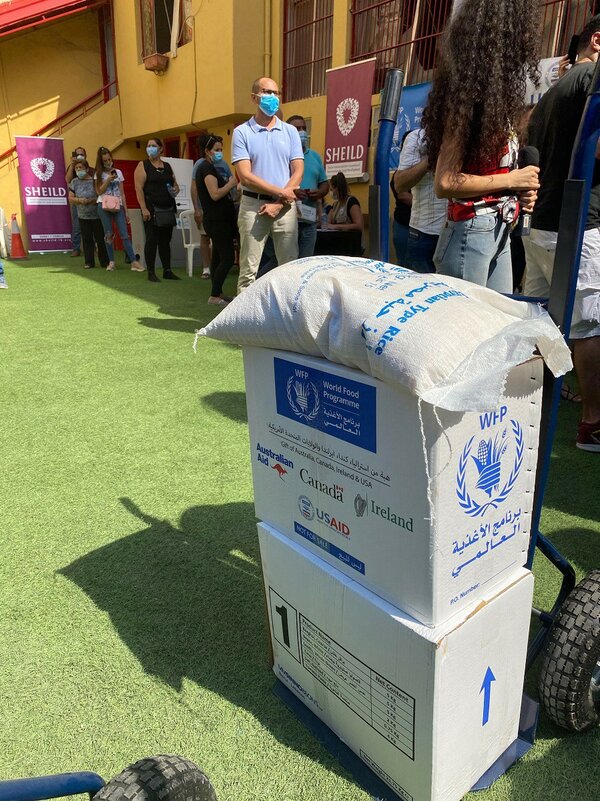
However, the impact of the port's destruction will be felt in the long term. WFP teams on the ground are working round the clock to offset its effects on the availability of food for millions of Lebanese.
To help stabilize the country's food reserves, WFP is planning to bring in supplies of wheat flour and grain. This will be divided in two phases: 12,500 metric tons of wheat flour will be imported immediately to guarantee one-month supplies for bakeries. A further 100,000 metric tons of grains will be subsequently shipped in, to be milled locally.
World Food Programme to scale up in Lebanon as blast destroys Beirut's port

As the diversion of most commercial trade to the Lebanese port of Tripoli is expected to cause congestion there, WFP is planning to clear up an area of Beirut's port to ensure vital food can continue to flow in.
With much of the infrastructure destroyed, however, WFP is looking at setting up temporary structures to enable all necessary operations, from offloading and handling of cargo to inspection services, commodity tracking, temporary storage and delivery to final destination.
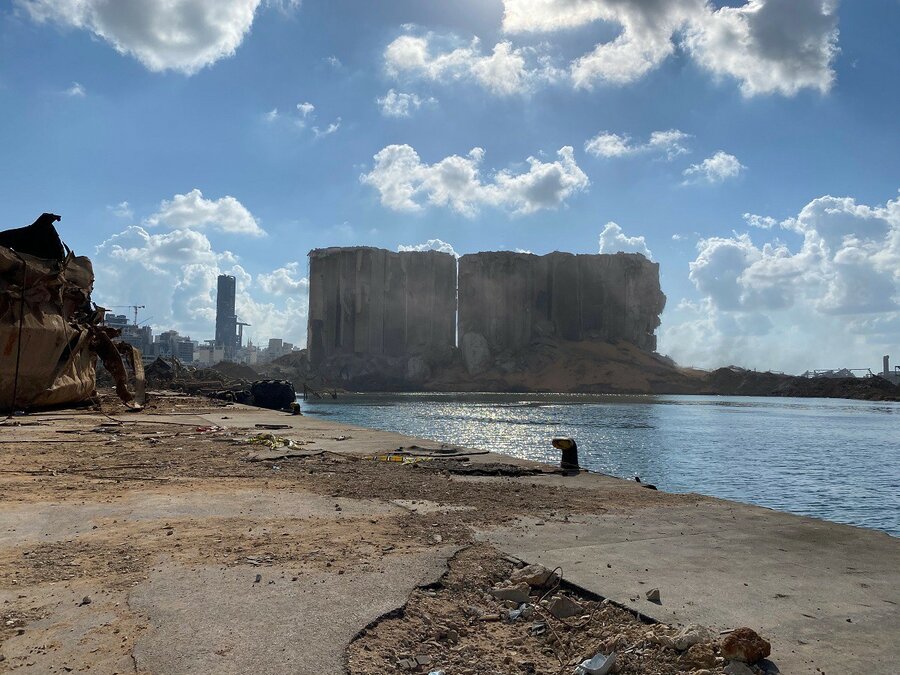
WFP planes are already flying in mobile storage and office units, forklifts, cranes, generators and other equipment, while specialist teams are hard at work assessing communications connectivity needs.
"Millions of people depend on this port for food," said Beasley. "We're all-hands-on-deck to make sure all of them will have bread on their tables."
To support the immediate and longer-term needs of those affected and help recovery in Beirut WFP requires US$ 235 million, of which US$ 30 million will cover port rehabilitation.


